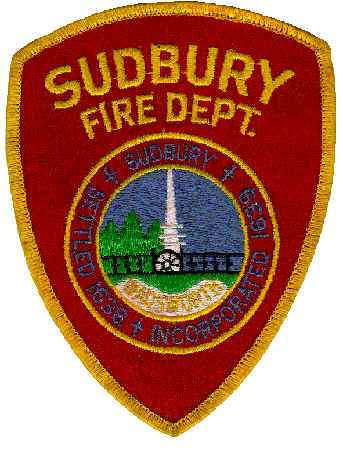
William Miles, Fire Chief
77 Hudson Road
Sudbury, MA 01776
For Immediate Release
Friday, Aug. 25, 2017
Contact: John Guilfoil
Phone: 617-993-0003
Email: john@jgpr.net
Sudbury Firefighter Graduates from Massachusetts Firefighting Academy
SUDBURY — Fire Chief William Miles is pleased to announce that Firefighter/Paramedic Celso Nascimento graduated from the Massachusetts Firefighting Academy last week.

On Friday, Aug. 18, Firefighter Nascimento was among the 34 graduates, all men, from the 256th firefighting class that completed the 50-day intensive Career Recruit Firefighter Training Program. Graduates were recognized at a 1 p.m. ceremony at the Massachusetts Fire Academy in Stow.
Firefighter Nascimento joined the Sudbury Fire Department in February, and has a strong background in paramedicine.
“We are all very proud of Firefighter Nascimento for successfully completing this intensive training program,” Chief Miles said. “I am confident that he will continue to be a valuable asset to the Sudbury Fire Department.”
The other 33 graduates represented the 22 fire departments of Ashland, Bedford, Clinton, Easton, Fitchburg, Franklin, Gardner, Groton, Hanover, Haverhill, Hudson, Lawrence, Lynnfield, Melrose, North Attleboro, Northborough, Sandwich, Scituate, Uxbridge, Weston, Wilmington and Woburn.
Today’s Firefighters Do Far More than Fight Fires
Today’s firefighters do far more than fight fires. They are the first ones called to respond to chemical and environmental emergencies, ranging from the suspected presence of carbon monoxide to a gas leak. They may be called to rescue a child who has fallen through the ice or who has locked himself in a bathroom. They rescue people from stalled elevators and those who are trapped in vehicle crashes. They test and maintain their equipment including self-contained breathing apparatus (SCBA), hydrants, hoses, power tools and apparatus.
At the Massachusetts Firefighting Academy they learn all these skills and more from certified fire instructors who are also experienced firefighters. Students learn all the basic skills they need to respond to fires and to contain and control them. They are also given training in public fire education, hazardous material incident mitigation, flammable liquids, stress management, confined space rescue techniques, and rappelling. The intensive, 10-week program for municipal firefighters involves classroom instruction, physical fitness training, firefighter skills training and live firefighting practice.
Starting with Class #247, the Massachusetts Firefighting Academy’s Career Recruit Firefighter Training Class shifted from a nine-week to a 10-week program. Instead of three recruit classes of 24 students every three weeks, the academy now has two classes of 36 recruits every five weeks. There is still a total of 72 recruits on the Stow campus all the time. The longer program adds more practical time for recruits, including training in water rescue, power saws, additional live fire training,and more focus on Firefighter I/II practical skills.
Basic Firefighter Skills
Students receive classroom training in all basic firefighter skills. They practice first under non-fire conditions and then during controlled fire conditions. To graduate, students must demonstrate proficiency in life safety, search and rescue, ladder operations, water supply, pump operation and fire attack. Fire attack operations range from mailbox fires to multiple-floor or multiple-room structural fires. Upon successful completion of the Recruit Program all students have met national standards of National Fire Protection Association 1001 and are certified to the level of Firefighter I and II, and Hazardous Materials First Responder Operational Level by the Massachusetts Fire Training Council, which is accredited by the National Board on Fire Service Professional Qualifications
###
Discover more from John Guilfoil Public Relations
Subscribe to get the latest posts sent to your email.